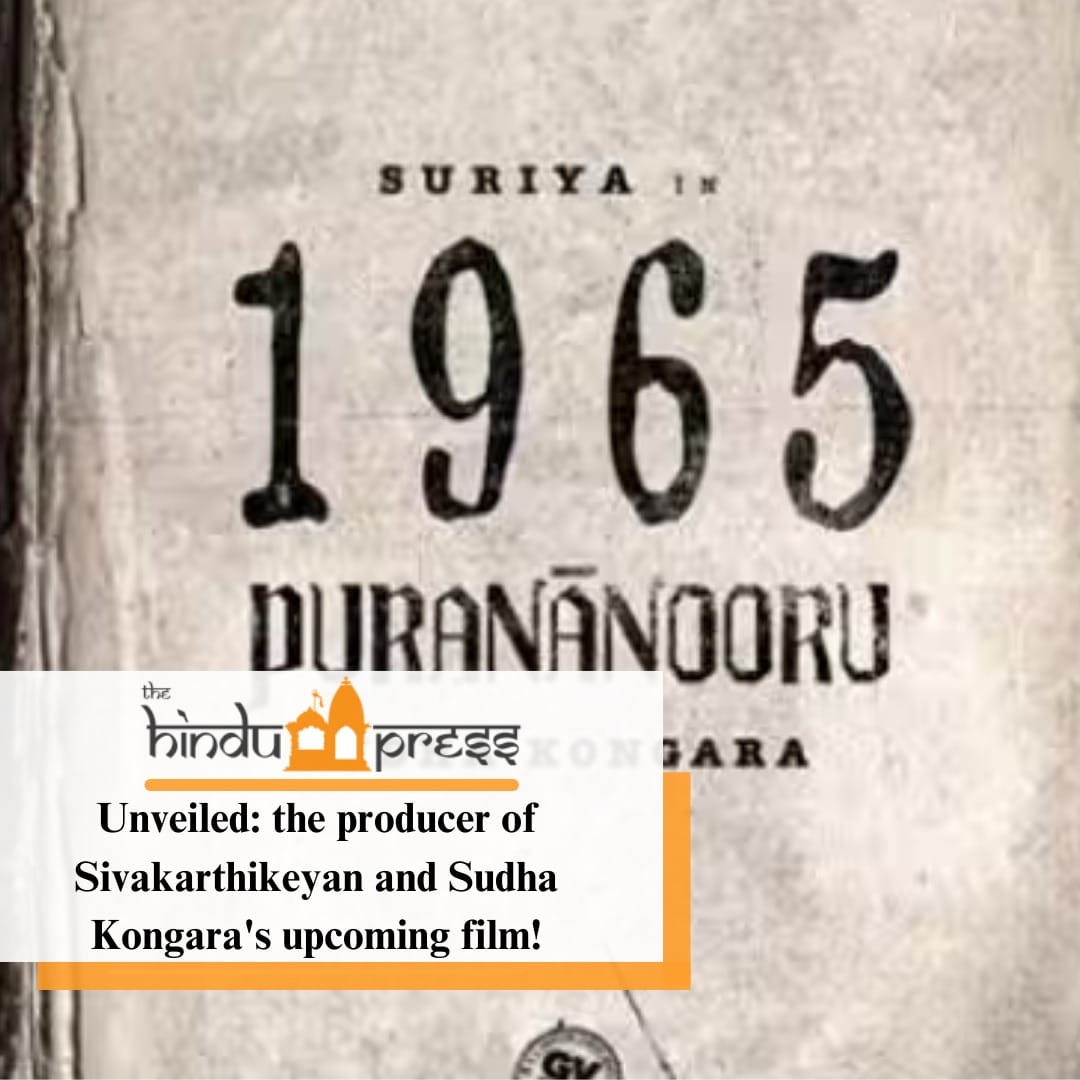By Pavethran Batmanathen
We often worry about life’s difficulties. But what happens when those concerns seem trivial compared to a sudden crisis, such as a war that devastates our nation? This idea forms the backbone of Hiphop Tamizha Adhi’s third directorial venture, Kadaisi Ulaga Por. In a notable moment, Natty, who portrays a Kingmaker in the film, asserts, “Kingmaker naalum usurukku onnu naa odi dhaan aaganum.”
Filled with the characteristic satire of Adhi’s style and a compelling storyline, Kadaisi Ulaga Por never drags. While the film presents a thought-provoking narrative infused with Adhi’s trademark satirical humor, its ambitious nature sometimes results in jarring tonal shifts and uneven character development.
Since the moment Adhi began stylishly twirling his moustache in Meesaya Murukku, he has embraced heroism without hesitation. In Kadaisi Ulaga Por, there’s no question that he takes on the role of the hero. The film opens with an extended voiceover from actor Nataraj, whose character shares the same name. As the title card appears, we witness a heroic Adhi emerging from shadows and light, literally fleeing from flames.
In another scene, when the usually silent Thamizharasan (played by Adhi) gears up to fight, the lights shift to red, and the music builds to a crescendo, marking his readiness for battle. With this film, Adhi attempts a more nuanced form of heroism. He refrains from delivering lengthy philosophical monologues and avoids strutting around with an air of bravado. While this subtlety works initially, it later poses challenges when his character engages in actions that stretch the bounds of credibility.
The writing somewhat undermines Adhi’s heroism, as his character lacks sufficient backstory. Adhi’s Thamizh is portrayed as someone who can rescue a group of girls from a tiger, devise a master plan to outsmart the elite of a superpower nation, and even generate electricity from CDs.
While such feats could theoretically be possible, the absence of a convincing backstory fails to resonate with the audience. The only background provided is that he was an orphan raised in a home and later in the wild, which doesn’t sufficiently explain his independence from the start. This lack of depth hampers our ability to accept why a military major, two political leaders, a kingmaker, and law enforcement officials would disregard their own instincts and blindly follow Thamizh’s commands.
Conversely, Hiphop Adhi has dedicated considerable effort to fleshing out Natty’s character, the Kingmaker, in detail. The film begins and concludes with his character’s voiceover. As someone devoid of conscience, Natty’s Kingmaker Nataraj captivates the audience with sharp dialogues, a hint of satire, and an outstanding performance. During a conversation with Anagha’s character, Keerthana, he quips, “Unga appa va CM aakarthukku kaaga katchi ah vangitom.”
When she inquires how, he smugly replies, “Aama chinnam dhaane Katchi? chinnatha vaangitom.” However, even his character experiences a sudden and predictably abrupt transformation, which diminishes the excitement his initially diabolical energy contributed to the film. This tonal shift, even as a plot device, feels jarring.
Despite these issues, the film remains engaging throughout. Instead of relying on forced dramatic moments, Adhi has infused organic commercial elements into the story, often delivered humorously. For example, when a character attempts to strike a bald villain with a wooden log and fails to budge him, the absurdity of the scene is heightened by a sudden shift in music.
Adhi, well-versed in satire, crafts numerous moments like these, lightening the atmosphere even as the narrative grapples with serious themes such as war and loss of life. A special mention goes to the film’s VFX and music; many of its explosive scenes hinge on brilliant VFX and production design. If you’ve ever been curious about what a completely ravaged Chennai might look like, Kadaisi Ulaga Por provides a vivid depiction. Similarly, the background score plays a crucial role in enhancing the film’s overall entertainment value. Even when the screenplay falters, the score ensures that the audience remains engaged and entertained.
Packed with intriguing ideas, Kadaisi Ulaga Por does, however, struggle with inconsistent execution. The first half meticulously develops the local Tamil Nadu political landscape from Natty’s viewpoint. In contrast, the second half diverges dramatically, shifting from a close-up view to a broader perspective on human existence and survival.
The film encompasses various political themes such as communism, the making of a king/politician, lobbyism, and nuclear power resulting in a chaotic amalgamation that feels on the verge of overflowing. At times, the rapid-fire political commentary can overwhelm viewers, making it difficult to grasp the nuances.
Ultimately, the film consistently manages to elicit laughter and maintain entertainment value. Initially, one might anticipate a heavy dose of political commentary combined with science fiction. While it delivers these elements, the film’s action and thriller sequences emerge as the most enjoyable aspects. This resonates with Natty’s dialogue, “Makkal ku enna theva mu makkal ke theriyadhu.” In the end, the film offers the entertainment we crave, even if it doesn’t deliver it in the expected manner.




